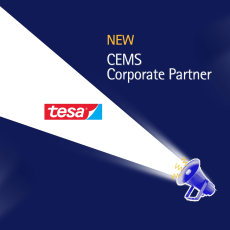Please tell us about yourself, what you do and what are your main responsibilities?
My responsibility is to run many companies in the Nordic countries, which includes being responsible for the employees as well as quality, financial and social responsibilities and to bring them forward. We (Humana) operate on the mandate of the Nordic citizens and on the social side our job is to take care of individuals in need and to do that on the assignment of taxpayers. It is tricky, because Humana is a listed company and as such, we have to obey company laws and everything that comes with that, such as disclosing financial information, marketing information, etc., while still abiding by the social laws. If you work within the healthcare industry you are not interested in financials, but you still have to meet the challenge of doing it efficiently or else it will not last in the long run. So we need to try and absorb new technology and innovations like a sponge and find a balance between being a social and a public company.
What do you consider to be your mission?
From a social care and global perspective, the Nordic region is not that far ahead. Oxford, in Great Britain, has been measuring social outcomes for 10 years and we can see that a lot has been done with social outcome contracts where you have care centred around one individual, and someone to provide care to that individual. If you manage to make the individual care more efficient and can have them take less resources it’s a win-win. Less care needed is good, and a good social outcome. It means people are getting healthier quicker. Run after 3 months, instead of 3 years. So, I felt like I could do something really good here and to push Swedish and Scandinavian healthcare forward. But to do this, things need to change. Recently, we won a court process against one of our companies dealing with homecare services, patient escort services and assistance. It was two authorities working against something that has not been legally tried yet. But this win in court proved to me that if you do the right thing, you will win. Care needs are increasing and that is not going to change. Tax money will not be enough, so we have to find new innovative ways to drive healthcare. If you are a for-profit company within the healthcare industry, they will always tell you that you do not care about the people and that you only care about the profits… It’s a tale as old as time. But I am not worried if they want to portray me in a certain way, as long as we drive things forward. Sweden will fall behind if we do not get proper instructions in place and do not look outside to absorb the good parts. You can’t be afraid of being out in the media and being portrayed in a negative way, that is what happens when you are in a (health)care company, but you have to think it’s worth it.
What are things that have personally shaped you and how did the CEMS environment & community help you on your professional journey?
Well, having four kids shaped me. It keeps me consistent everyday and helps me be efficient. My student period shaped me as well. CEMS is so valuable because you are out meeting people from other countries and picking lessons from what has worked and what hasn’t worked. When I came into an international context, spending two semesters abroad, being in the Netherlands and Switzerland, as well as moving to London and staying there for five years, I started to feel like a European rather than a Swede or a Scandinavian. I also have a lot of good friends and they shaped me. I am really social and always liked to meet with different people. Because when you meet people, you hear from them and when you listen, you learn a lot.





